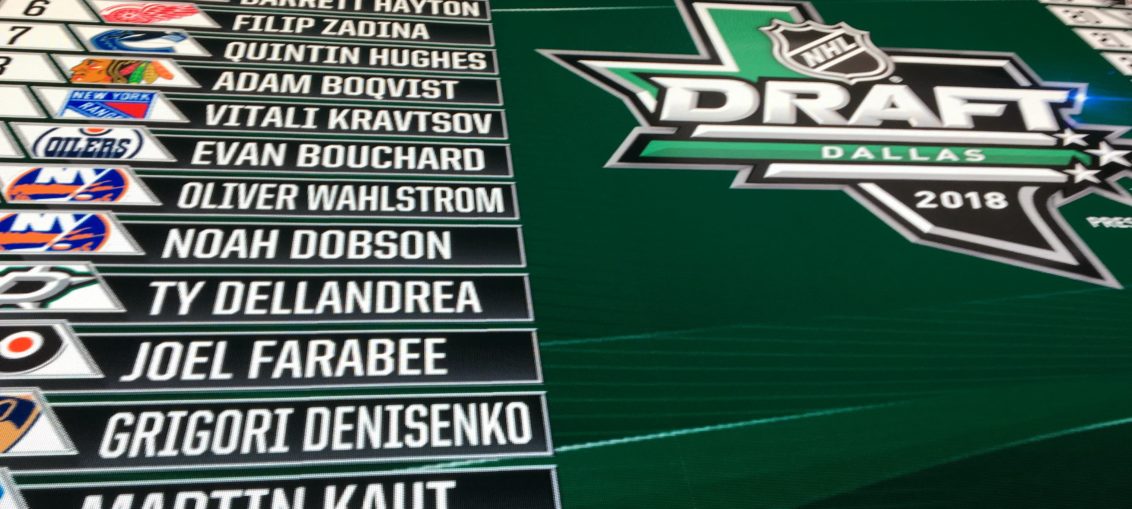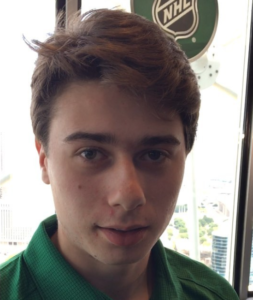
After an 11th shoulder surgery prematurely ended his NHL playing career in 2003, Surrey, BC native Bill Muckalt turned to coaching. Mel Pearson who recruited Muckalt to play Michigan asked the 1998 Hobey Baker nominee to join his staff at Michigan Tech.
After a four-year run, Muckalt took over as coach and GM of the USHL Tri-City Storm in 2015. He guided the Storm to a championship title, becoming one of only five coaches to claim the Clark Cup in his first year at the helm. Two of the five, Jeff Blashill (Detroit) and Jim Montgomery (Dallas) are coaching in the NHL.
When Pearson was named head coach at Michigan last summer, Muckalt was the first person he reached out to. The program had immediate success, advancing to the Frozen Four in their first campaign after legendary coach Red Berenson retired.
Can you describe your first season as an associate coach with Michigan in a nutshell?
“We were picked to finish sixth out of seven in the Big 10. We weren’t very good at the start of the year. We had some growing pains. I think it took a while for coach (Mel) Pearson to get our culture to go in the direction we wanted to go as a staff, to get the kids to pull and buy in. It was a learning curve. We were a young team. And to finish the Frozen Four, lose to Notre Dame with five seconds left was heartbreaking. But it was still a good thing and an exciting ride for our program, considering where we started the year.”
Can you give us a glimpse of your long-standing relationship with head coach Mel Pearson? Pearson recruited you on three occasions, to play at Michigan, as an assistant coach at Michigan Tech, and now an associate coach at Michigan. What is so special about your bond?
“It was very exciting to go back (to Michigan). It was the third time he’s recruited me, once as a player at Michigan; as an assistant at Tech; and the third time to be back at Michigan as part of his staff is special. I’m a big believer in him as a coach and person. Especially, his values and ability, he’s got a special way about him. It’s really fun to work with him. I believe in him. At the same time, he feels that way about us. He gives an opportunity for us (coaching staff) to contribute our opinions and then makes decisions accordingly. We’ve been together a long time. He’s the reason for my development as a player and as a coach. It’s a really good fit. I think it’s one of those relationships that’s special in life.”
What was the feeling returning to your alma mater, especially after winning two National Championships as a player?
“Michigan is always home. To play College there and have great experiences, I bleed Maize and Blue. I think that anybody who knows me knows how important it is me. To get that opportunity to go back and be part of it is special. There was a lot of sacrifices along the way to get back home.”
Was there pressure joining a coaching staff, tasked with replacing Red Berenson, a U Michigan institution for 34 seasons?
“There was more pressure on coach Pearson, I think than me. Nobody is going to replace Red. He’s larger than life. He’s been like a father figure to all of us. I know coach Pearson holds him in such high regard. He’s had such a major impact on him. “Mouse” has had the benefit of working with John McGinnis and Red Berenson, two of the legends of College Hockey. Now he’s got a pedigree where he’s taking it to another level. I think he’s created his own identity and pedigree.”

What was like to coach top prospect defenseman Quinn Hughes and how do you foresee his future?
“I’ve never coached a kid that has the edges, elusiveness, the ability to be deceptive to allude the forecheck, to get through the neutral zone or alleviate pressure. He’s going to be a new wave, a new type of defenseman. Back in the day, I had a tremendous amount of respect for Scott Stevens. But he’s a new type of defenseman. He moves pucks, creates offense, draws penalties. Just the way the game is going, the type of style, there were always the Paul Coffey’s, Ray Bourque’s, Bobby Orr’s, Hughes has the ability to create separation as well as anybody I’ve ever seen. As he continues to get stronger, develop and mature, I think his game is only going to have a bigger impact and become a more dominant player.”
After your NHL playing career ended prematurely, what was behind your decision to enter coaching?
At the end of my playing career, I had 17-18 surgeries. I just couldn’t do it anymore. To be able to impact young people, make a difference in their life, help them live their dream, it’s more rewarding. Sometimes, they look at you and ask, “how did you know that?” Well you knew that because either you failed, or you saw someone else or you excelled or saw someone else excel. You draw on your own variances to help pay it forward. It’s actually probably more rewarding to coach than play. Now you play for every member of your team. You have to help everybody get prepared.
On having future aspirations to coach in the NHL:
“I think you’re always wanting to listen, wanting to get better. This will be my eighth, ninth year at the NHL Coaching Clinic. You want to make yourself better, make your team better. The biggest thing I try to hang my hat on every day is to do the best job wherever I’m at. If I do that, I think that’s the most important thing. Live in the six inches in front of your face and keep doing better at what you do. Try and do the right thing for the right reason and if that happens at some point, I think the opportunity will arise.”
After advancing to the Frozen Four in your first season, what can Michigan fans expect in 2018-19?
“I think the biggest question right now is who drafts Quinn? Will they try to sign him or not? I like our group. I think we have a lot more depth. We have a year under our belt. We moved the meter, increased expectations. We have a big challenge. We have to live up to them. It’s a tough league. The Big 10 has a lot of quality coaches, quality programs. We’re going to have to answer the bell, no one is going to take us lightly, not that they ever have.”
